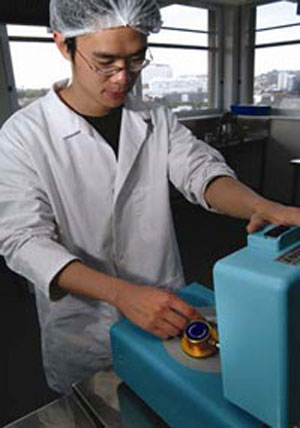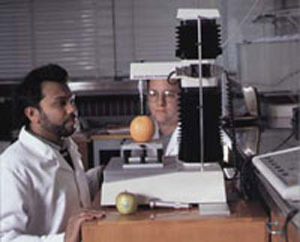Food Scientist/Technologist
Tasks & duties

Food scientists/technologists may do some or all of the following:
-
improve or develop new food and drinks
-
develop new food packaging or improve current packaging
-
make test samples of food products and conduct trials
-
manage production of food and drinks
-
develop and supervise food manufacturing processes and equipment
-
ensure food products meet specifications and standards (quality assurance)
-
source and select ingredients for food products
-
improve efficiency of manufacturing processes
-
investigate the sensory and nutritional properties of foods
Specialisations
Food scientists/technologists often specialise in one area of food technology such as:
-
packaging
-
product development
-
production
-
quality assurance
-
policy and standards
-
technical sales
-
research and development
Skills & knowledge

Food scientists/technologists need to have:
-
knowledge of food and drink products
-
knowledge of food processing and production methods
-
knowledge of hygiene and quality standards
-
skill in analysing and interpreting research results
-
practical skills for performing experiments and operating scientific equipment
-
problem-solving skills
-
planning and organisational skills
-
communication skills
-
writing skills, for writing reports and for publications
-
maths and computer skills
Entry requirements
To become a food scientist/technologist, most employers require you to have a Bachelor's degree in food science or food technology that is approved by the New Zealand Institute of Food Science and Technology (NZIFST).
New Zealand Institute of Food Science and Technology website - courses in food science and technology
Secondary education
To enter a food science/technology tertiary course, you need NCEA Year 13 calculus and chemistry. The entry requirements for food science/technology courses vary, so you may also need statistics, physics, technology or biology.
Tertiary education
In New Zealand, there are 12 degrees on offer for food science or technology.
Training on the job
Food scientists/technologists are often required to complete on-the-job training programmes specific to the products and processes they are working with. They may also need to do further professional development courses to keep up with market trends, or travel overseas to complete specialised courses.
Useful experience
Useful experience for food scientists/technologists includes:
-
food processing or production work
-
laboratory work
-
quality assurance work
-
business management or marketing
Video
Food Technologist in the Seafood Industry
From just a job on you tube
Related courses
Food Science and Biotechnology
Laboratory Technology
Document Actions
